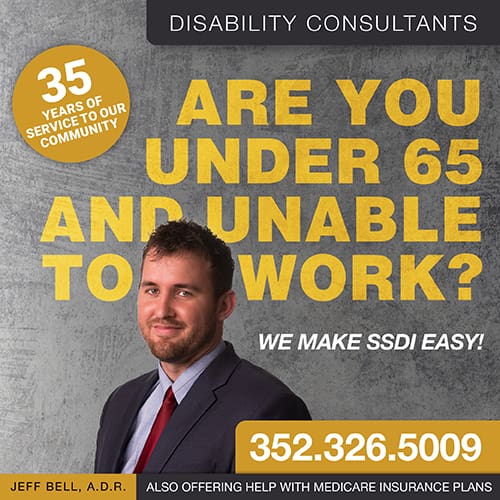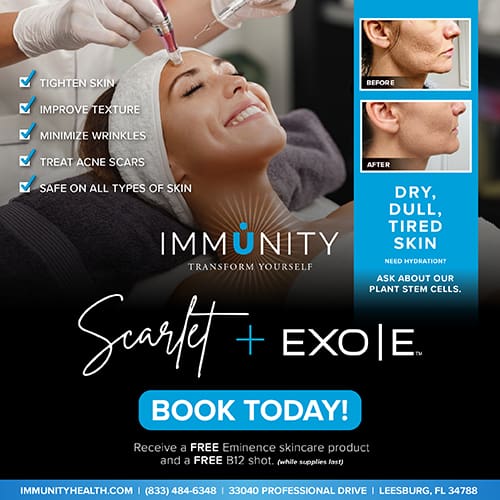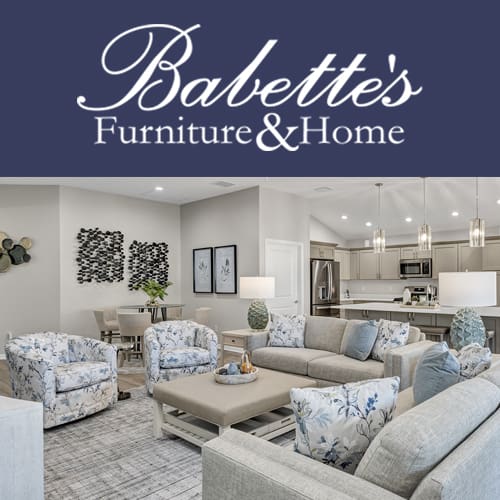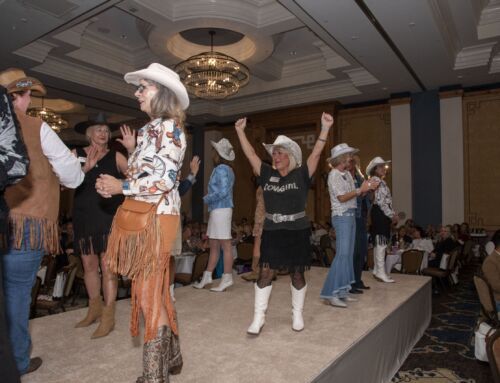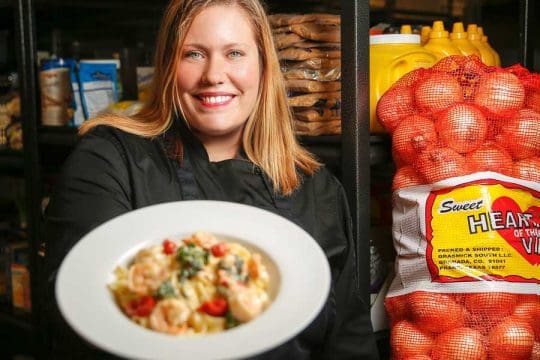
By Akers Editorial
Chefs improvising with carryout meals at their businesses

The coronavirus pandemic threw business as usual out the window, and for Gourmet Today owner and chef Jessy Flinn, it meant no more catered food events for large crowds and switching to carryout dishes for individuals.
“It’s been going really well for us so far,” Jessy says of her Leesburg business. “What we tried to do with this, in the mix of absolute chaos with grocery stores running out of food, we decided to do a Tuesday through Friday carryout menu and trying to keep it economical for people who maybe can’t afford to spend $20 or $30 a day, but a $9 meal is something that most people can afford. So, we’re trying to fill a need and keep our 10 employees in hours and make sure they were taken care of as well.”
The coronavirus came as a big shock to the chef and quickly impacted her catering business.
“Catering is 70 to 80 percent of our income, so losing every event through the end of May was a huge hit,” Jessy says. “Right now, our carryout menu is not designed to be something that would sustain us forever, but it’s something that is basically filling a hole.”
Jessy says her company had over 60 event cancellations due to the virus.
“On March 15, I had 16 cancellations in my (email) inbox that day, and the next day I had 17 cancellations, and by Wednesday of that week I had lost everything through May and started getting cancellations for June,” she says. “I cried a lot. But we believe God is providing for us, so we’re trying to be the best stewards we can with what we have and try to fill a need and stay afloat.”
The Kitchen Café and Cooking School, 712 W. Main St., Leesburg, located in the Southern Gardens Galleria, is providing carryout meals and going above and beyond in providing cleaning equipment and household items people may need. Owner and chef Ze’ Carter also invites the public to nominate his or her favorite essential or frontline workers for recognition.
“We want to bring them lunch,” Ze’ says of the essential workers. She runs the business with her daughter, chef Joy Williams.
AdventHealth posted on its website the following informative tips for the public regarding the safety of takeout and delivery food during the coronavirus pandemic:
Can coronavirus spread through restaurant food?
Coronavirus isn’t a foodborne illness, and it can’t live on food. According to the Centers for Disease Control and Prevention (CDC) and the U.S. Food and Drug Administration, there’s no evidence coronavirus can be spread through food, so there’s no need to worry about possible restaurant food contamination.
The food supply remains safe from coronavirus for both people and animals. But it is possible for coronavirus to survive on surfaces or objects for hours to days. To be safe, wash your hands often with soap and water for at least 20 seconds before eating — just like you would if you prepared the food yourself — and after handling restaurant takeout containers and packaging.
Is it OK to order food via delivery services during the coronavirus pandemic?
Yes, it’s safe to use restaurant delivery services where a courier picks up your food from the restaurant and delivers it to your door. There are several different smartphone apps to choose from for food delivery right to your home.
Coronavirus is generally thought to be spread from person to person through respiratory droplets from sneezing or coughing. To reduce your risk of contracting coronavirus from the delivery person or infecting the delivery person if you’re sick or contagious, many restaurants also offer pickup options.
Some restaurants may even have you pay in advance online and request your car make, model and license plate to bring the food directly to your door, which eliminates the need to get out of your car completely.
In addition, some delivery services use a no-contact model. When you place an order, the delivery person will set your food in a safe location at your doorstep and alert you when it’s ready for pickup.
This option helps avoid any contact with the delivery person, which helps maintain social distancing to reduce the risk of spreading or contracting coronavirus. As a reminder, the CDC recommends staying at least 6 feet away from others.
Does food delivery benefit people at high risk of severe illness from COVID-19?
No-contact options can be especially helpful for those at high risk of serious illness from COVID-19, which the CDC defines as:
- Anyone 65 and older
- People who are immunocompromised because of cancer treatment, HIV or prolonged use of corticosteroids
- People who are diabetic
- People with chronic lung disease or moderate to severe asthma
- People with heart disease, renal failure or liver disease
- People who are severely obese, with a body mass index (BMI) of 40 or greater
- Residents living in a nursing home or long-term care facility
If you or a family member is at the highest risk of developing complications from coronavirus because of these conditions, you’ll want to take every precaution to protect your health.
After accepting your food delivery or picking up your carryout order and before eating, follow safe food handling practices by washing your hands with soap and water for at least 20 seconds. Washing your hands is one of the most effective ways to reduce the spread of the virus.
Is it OK to order takeout if I’m sick with COVID-19?
If you think you may have coronavirus, you should take special precautions when ordering takeout:
Stay away from other family members
To help prevent coronavirus from spreading to other members of your family, the CDC recommends quarantining yourself in a designated sick room in your house, such as your bedroom, and have a family member deliver your food to your door.
Use your own dishes
Use your own designated dishes, drinking glasses, cups and eating utensils if you think or know you’re sick with COVID-19, the disease caused by coronavirus. After using these items, wash them in soap and water or the dishwasher, and wash your hands.
You can also avoid dishes and use the disposable utensils that come with your takeout order. Be sure to dispose of them in a lined trash can when you’re done.
Is it OK to order online and go to the restaurant to pick it up?
Compared to sitting down in a restaurant, interacting with a waiter and sitting close to other customers, ordering restaurant food online and going to the restaurant to pick up your order is safer. Placing your order remotely and picking up your food helps maintain social distancing and limits the contact you have with restaurant and food delivery workers, as well as other customers, during the transaction.
But if you’re sick, or at high risk for serious illness from coronavirus, it’s best to stay home. In those situations, let the food come to you in your sick room or by ordering through the no-contact restaurant delivery option instead of venturing into the restaurant for pickup.
When paying for your order, use your credit or debit card rather than cash. The CDC recommends that employees and customers limit handling cash to decrease the potential spread of coronavirus and to use online transactions where possible.
Is it OK to order food via drive-thru?
Using the drive-thru to order and pick up your order helps maintain social distancing and limits contact with others even more so than going into a restaurant for pickup.
But don’t dash and dine. Be sure to wash your hands before eating in case coronavirus and other harmful germs are on the surface of the food container or your hands. If soap and water aren’t available, alcohol-based hand sanitizer will work.
What’s safer, drive-thru or going into the building to pick it up?
The drive-thru is likely safer than going into a restaurant to pick up your restaurant order. When you go through the drive-thru, you can stay within the confines of your car and maintain a safe social distance from other people to reduce germ spread.
But there are still points of contact with a drive-thru, such as accepting your food packaging and paying for your order. Try to pay online beforehand or pay via a smartphone app when possible. Use your credit or debit card instead of cash, and before eating, remember to wash your hands with soap and water for at least 20 seconds.
Which food safety measures do restaurant workers take to protect people from coronavirus?
Food service workers have to follow strict public health guidelines to protect consumers from coronavirus and other harmful germs, according to the National Restaurant Association. To meet these guidelines, restaurants have safety protocols and best practices in place, including guidance from ServSafe, a certified food handler program.
Restaurant operators are encouraged to stay up to date with their state and local health departments for the latest advisories about coronavirus in their community. Restaurant workers should also follow good hygiene and infection control practices, including:
- Cleaning and disinfecting countertops, other surfaces and restaurant equipment with disinfectants approved by the Environmental Protection Agency
- Covering their coughs and sneezes to prevent germ spread
- Staying home if they’re sick
- Washing their hands frequently with soap and water or hand sanitizer with at least 60% alcohol if soap and water aren’t available
In general, the CDC recommends everyone, including restaurant workers and customers, take these preventive steps to help slow the spread of coronavirus:
- Avoid close contact with people who are sick
- Clean and disinfect high-touch surfaces daily, such as smartphones, remote controls, handles, countertops, light switches, doorknobs, tables, sinks and faucets
- Distance yourself from others by putting 6 feet between yourself and others
- Don’t touch your eyes, nose or mouth; that’s how coronavirus germs can enter your body
- If you get sick, stay home
- Use a tissue when you cough or sneeze, then throw the tissue away immediately in the trash
- Wash your hands often with soap and water for at least 20 seconds
Are restaurant workers required to wear face masks?
The CDC doesn’t recommend or require restaurant workers to wear face masks to protect themselves and others from coronavirus. Face masks are only required for health care workers who are caring for sick patients. That’s why you may not see restaurant and food delivery workers wearing face masks. The CDC says face masks should be saved for caregivers. For the latest updates on coronavirus and what to do if you or a loved one feels sick, visit AdventHealth’s website and click on the link: Coronavirus Resource Hub.














